This blog is part of a project on the state of democracy in Africa. See our other works from this project.
During periods of institutional crisis, the Democratic Republic of the Congo (DRC) has a tradition of governments that engage in dialogue with the opposition and civil society. Since the return of multiparty democratic competition in 1990, there have been at least eight such dialogues, three of which took place in the last decade. While several of these national dialogues have allowed the country to overcome conflict and political deadlock, critics have argued that they are often orchestrated to co-opt opposition members and undermine democratic institutions.
Since last year, religious leaders have proposed another national dialogue to address political tensions in Kinshasa as well as the M23 rebellion in eastern DRC. This is likely to fail if it does not build in strong guardrails to prevent politicization: Crafting a clear mandate, being inclusive, and creating a strong and neutral mediation team will be essential.
Another dialogue: Supporters and detractors
The Catholic Church and the largest assembly of Protestant churches—l’Église du Christ au Congo (The Church of Christ in the Congo, ECC)—have been arguing in favor of another national dialogue since early 2025. For the church leaders, this “Social Pact for Peace and Good Living Together in the DRC and the Great Lakes Region,” is necessary to overcome the recurring conflicts in eastern DRC, especially the M23. They have also brought on board political leaders, some of whom suggest that the dialogue needs to address fundamental governance issues nationwide, not just the conflict in the east. Martin Fayulu, Denis Mukwege, Moise Katumbi, and Joseph Kabila have all given their eager support to this initiative.
Likely due to this support coming from prominent members of the opposition, the presidential camp and its allies, such as the Conseil interreligieux congolais (Congolese Interreligious Council, CIC) accuse the Catholic Church and the ECC of catering to opposition politicians and circumventing democratic institutions. Although President Félix Tshisekedi himself has never openly opposed the dialogue initiative, he has argued that the government does not suffer from a lack of legitimacy, and has criticized some members of the opposition, in particular former President Joseph Kabila, of joining the M23 rebellion.
Beyond the current administration’s critiques however, there are other reasons to be skeptical of this proposed dialogue. In our paper for the Brookings Institution, we have also made the case that these kinds of extra-constitutional arrangements can contribute to the lock that oligarchic elites have had on power since independence, undermining democratic accountability and reinforcing the revolving-door that characterizes relations between the administration and the opposition.
Institutions, not individuals, on the agenda
Dialogue in the DRC is often an opportunity for opposition leaders to be named to positions in government or in state-run companies. This was the case in all the recent national dialogues—for example, following the concerations nationales (national consultations) in 2013, a new government was formed, bringing in leaders close to opposition stalwarts Kengo wa Dondo and Jean-Pierre Bemba. Similarly, in 2016, the dialogue du centre interdiocesain de Kinshasa (dialogue of the interdiocesan center of Kinshasa) was supposed to chart a path forward for the organizing of elections, which were inevitably not going to take place before the constitutional deadline of December 2016. Instead, they ushered in a new government led by former opposition member Bruno Tshibala, which was widely seen as an attempt to co-opt and weaken the UDPS opposition party. Most recently, following a brief and discrete dialogue with members of the opposition, the government was again reshuffled. On August 8, 15 new figures, including former Prime Minister Adolphe Muzito, joined the ruling coalition. However, Muzito was the only opposition leader to have accepted the government’s offer; other important leaders rejected this as an attempt to co-opt them.
In addition, now there is the thorny issue of the M23 rebellion. There is no doubt that some of its members, as well as the associated Alliance du Fleuve Congo (Congo River Alliance), will want to take advantage of a national dialogue to obtain amnesties and high-profile positions, rewarding them for having taken up arms.
For a new national dialogue to be beneficial, it would need to shift its agenda from co-opting individual opponents to tackling important, existential issues. The M23 crisis—which is the focus of talks mediated by the U.S. and Qatari governments—has raised serious concerns about governance, security sector reform, demobilization, and peace in general. After all, the eastern DRC has been subjected to numerous rebellions over the past 30 years, and over 120 armed groups are currently based there. A national dialogue could pave the way toward a comprehensive peace process, perhaps with the involvement of the United Nations and African Union, to address these issues.
On the national scene, there are also important issues that need to be debated, above all the upcoming electoral process. This dialogue could try to reinforce the consensus of the 2016 talks that any president who has served a second and final term cannot run for a third, especially given the danger of circumventing constitutional provisions regarding term limits. Furthermore, there are much-needed electoral reforms that need to be discussed, in particular reform to the election commission (CENI) and the electoral law. Since 2020, politicians and civil society actors have suggested ways to improve the composition and independence of the CENI, the conduct of electoral operations, the transparency of the results transmission chain, and the handling of electoral disputes. None of these recommendations have been adopted. There is a significant danger that, without such a debate, the 2028 elections could once again be boycotted by a large part of the political class.
A 2025 dialogue for real reform
On August 25, a coalition of Catholic and Protestant church leaders submitted a road map to President Tshisekedi for a national dialogue. To be successful, a national dialogue will have to learn from the mistakes of the past. It needs to be inclusive and transparent, which will lend it greater legitimacy and can help prevent it from merely becoming a buying-off of critics. It will need a strong, credible mediation—the religious leaders are well placed to do this, especially since their group has now brought in dissonant voices. It is also important that this not simply be an occasion for rubber-stamping what has already been prepared by one party, such as the 2013 consultations or the dialogue facilitated by Edem Kodjo in October 2016. Participants must be free to discuss and come up with solutions.
Finally, the mandate of the negotiations should be clear and focused. Given that there are already two negotiations underway—led by the U.S. and Qatar, respectively—on the M23 crisis, this dialogue should focus more narrowly on addressing electoral reforms, to ensure that the next elections are credible.
-
Acknowledgements and disclosures
The Brookings Institution is a nonprofit organization devoted to independent research and policy solutions. Its mission is to conduct high-quality, independent research and based on that research, to provide innovative, practical recommendations for policymakers and the public. The conclusions and recommendations of any Brookings publication are solely those of its author(s), and do not reflect the views or policies of the Institution, its management, its other scholars, or the funders acknowledged below.
This publication is supported by a grant from the Open Society Foundations.
Brookings recognizes that the value it provides is in its absolute commitment to quality, independence, and impact. Activities supported by its donors reflect this commitment.
The Brookings Institution is committed to quality, independence, and impact.
We are supported by a diverse array of funders. In line with our values and policies, each Brookings publication represents the sole views of its author(s).
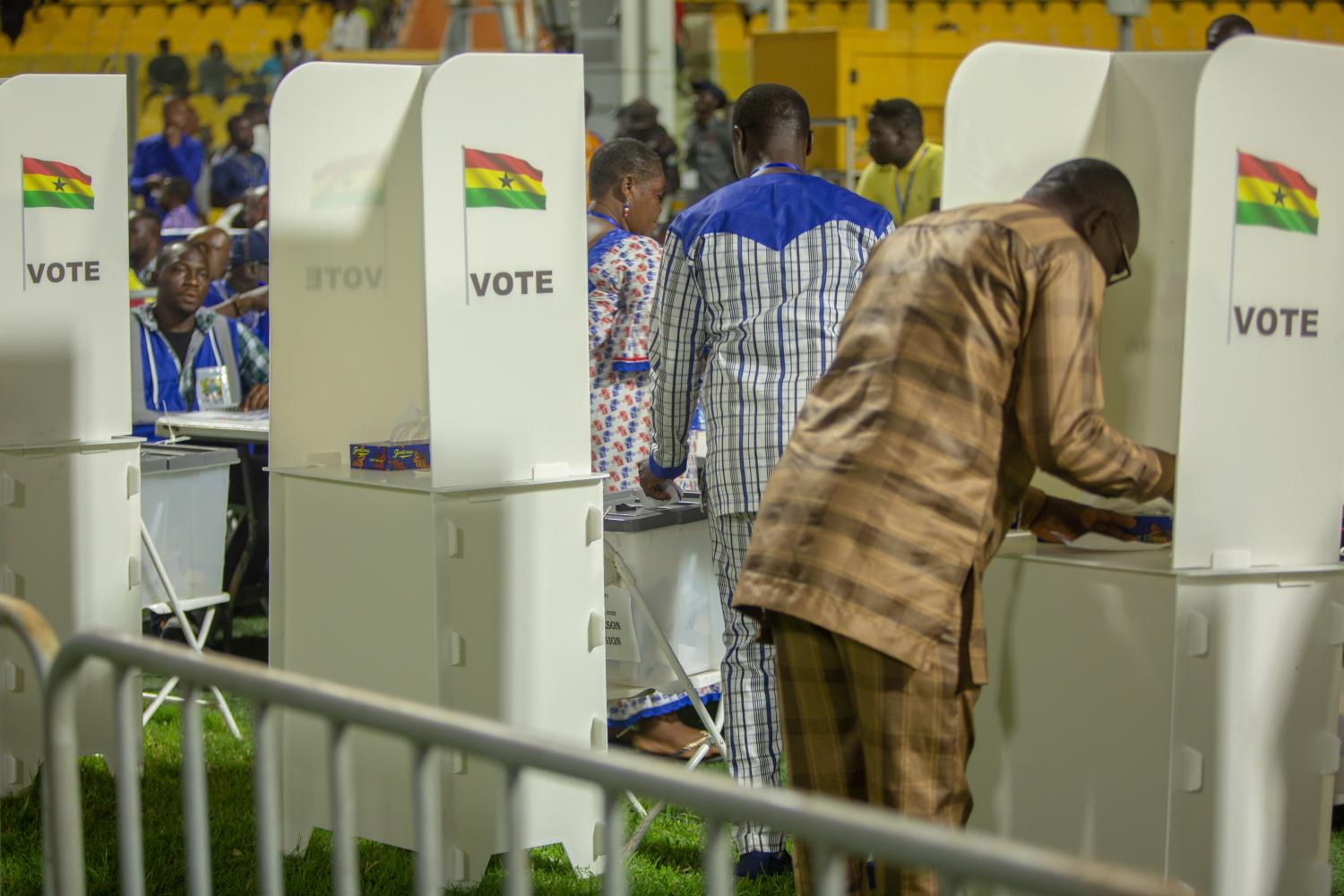
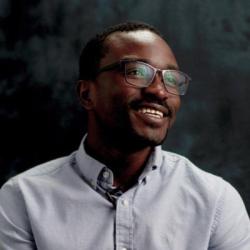
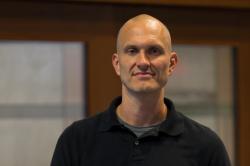
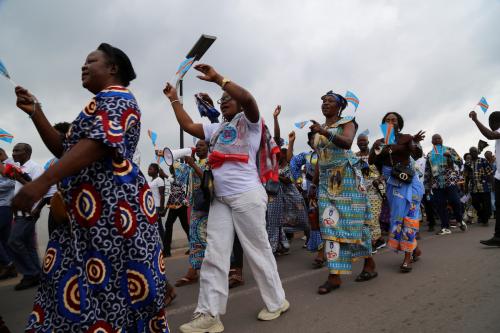

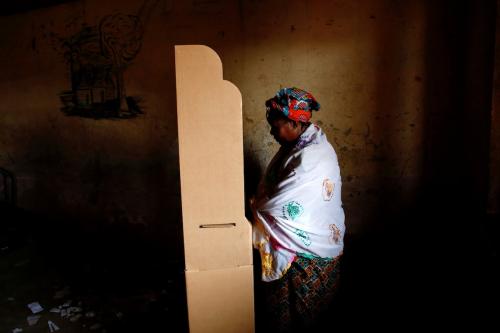
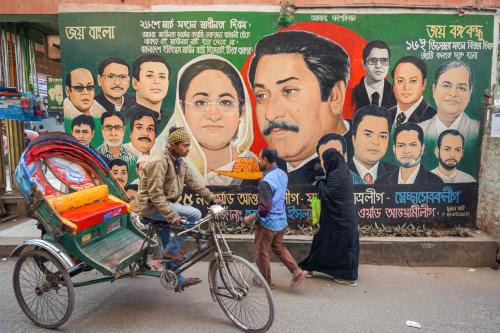

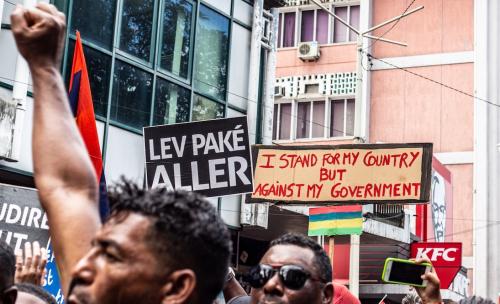
Commentary
National dialogue in the DRC: A tool for co-opting opponents or consolidating democracy?
November 4, 2025